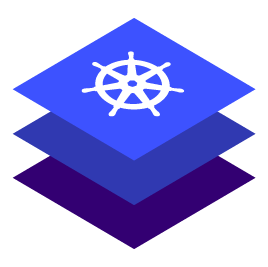DKP Insights Release Notes
DKP® version 2.3 was released on August 16, 2022.
You must be a registered user and logged on to the support portal to download this product. New customers must contact their sales representative or sales@d2iq.com before attempting to download or install DKP.
Release Summary
Welcome to D2iQ Kubernetes Platform (DKP) 2.3! This release provides fixes to reported issues, integrates changes from previous releases, and maintains compatibility and support for other packages used in DKP.
DKP 2.3.x supports Kubernetes versions between 1.21.0 and 1.23.x. Any cluster you want to attach using DKP 2.3.x must be running a Kubernetes version in this range.
Configuration Insight Alerts
In Kubernetes, there is a class of problems that arise from an incorrect or insufficient configuration for workloads in Kubernetes clusters. We integrated Polaris, an open source component, into the DKP Insights engine that checks the workload configurations against a set of best practices in the following categories, and then suggests improvements through configuration insight alerts:
Health Checks
Images
Networking
Resources
Security
This feature allows users to follow best practices for workload configurations in Kubernetes clusters and keeps the clusters operational by preventing potential problems from occurring in the future.
For more information related to these class types, see this video:
Insight Alert Details
DKP Insights detects various kinds of anomalies in the Kubernetes clusters and workloads and presents them as Insight Alerts in the Insight Alert table. In this release, we enhance an insight alert with a details page.
When an Infrastructure Ops. Manager or App owner selects an insight alert in the Insights Alert table, it opens an insight alert details page that provides information on the anomaly, RCA, and suggested solutions to resolve the anomaly.
This feature allows for improved RCA and Solution sections for each class of insight alerts in future releases. It provides the first step in removing external dependencies, lowering the MTTR for the resolution of anomalies, and providing cost savings. In the first iteration, the pod restart Insight alerts is provided with specific info in the corresponding details page.

